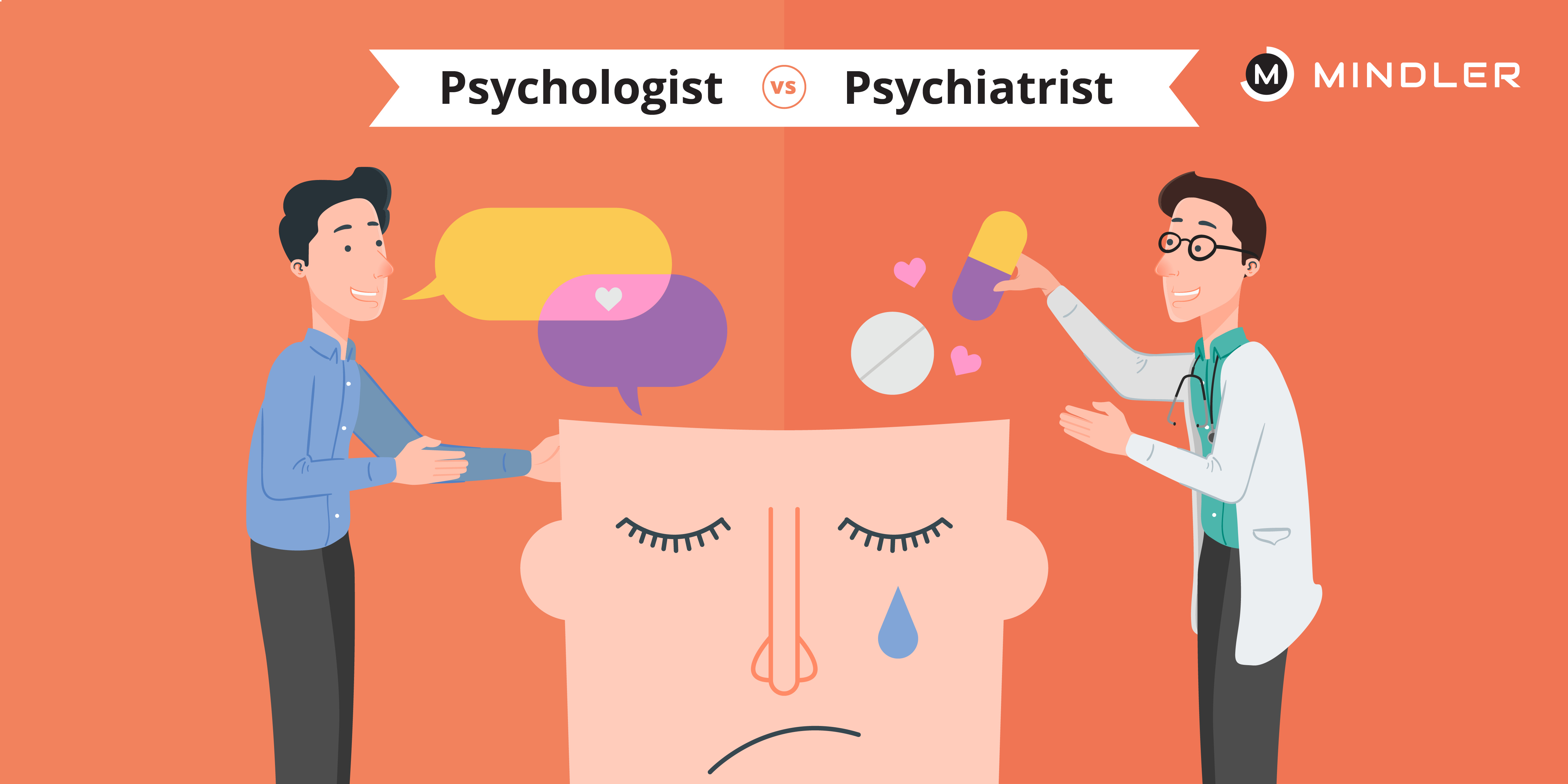Take the First Step Toward Healing with Elementa Psychologists Kew
Take the First Step Toward Healing with Elementa Psychologists Kew
Blog Article
Clinical Psycho Therapists Vs Psychiatrists: Secret Differences You Need To Know
The difference in between clinical psychologists and psychoanalysts is critical for individuals seeking psychological wellness care, as each professional offers distinct expertise shaped by their academic histories and therapy techniques. This distinction raises essential concerns regarding which expert might be finest matched for various mental health needs.
Educational History
Many individuals seeking mental health services may question the distinctions in academic backgrounds between professional psycho therapists and psychoanalysts (clinical psychologists kew Melbourne). The differences are essential and considerable for comprehending the duties each specialist plays in psychological health and wellness care
:max_bytes(150000):strip_icc()/types-of-psychologists-and-what-they-do-2795627_v1-9a9b856f7d1c494aafb96f59e4843f55.png)
In contrast, psychoanalysts are clinical doctors (M.D. or D.O.) who finish a four-year clinical degree followed by a residency in psychiatry, which lasts an additional 4 years. Their medical training equips them to understand the biological facets of psychological conditions, allowing them to suggest medications and provide a medical viewpoint on therapy.
These differing instructional paths underscore the unique knowledge each professional offers the field, forming their approaches to diagnosis, individual, and treatment treatment (clinical psychologists kew Melbourne). Comprehending these distinctions is crucial for people navigating the psychological health system

Therapy Strategies
Diverse therapy approaches define the practices of scientific psycho therapists and psychiatrists, mirroring their distinct training and locations of knowledge. Their emphasis is on emotional and emotional analysis, treatment, and the development of coping approaches to address different psychological health and wellness conditions.
On the other hand, psychoanalysts are uniquely qualified to identify and deal with psychological health disorders with a mix of psychiatric therapy and pharmacotherapy. Their clinical training allows them to prescribe medicines, which can be critical for managing conditions such as schizophrenia, bipolar illness, or serious clinical depression. Psychoanalysts often take a more biomedical method, thinking about the organic, mental, and social aspects affecting a person's psychological wellness.

Function in Mental Healthcare
The roles of professional psycho therapists and psychiatrists in psychological health care are corresponding, mirroring their distinctive training and competence. Professional psycho therapists primarily concentrate on the assessment, diagnosis, and treatment of mental issues via different restorative methods, including cognitive-behavioral treatment (CBT), interpersonal therapy, and psychoeducation. Their training emphasizes recognizing human behavior, psychological performance, and the restorative procedure, allowing them to offer evidence-based interventions tailored to specific requirements.
In contrast, psychiatrists are clinical doctors that specialize in the diagnosis and treatment of mental wellness conditions, commonly employing a biomedical technique. They can recommend medications to take care of psychiatric symptoms and are trained to consider the physical elements of mental wellness, such as neurobiology and pharmacology. This clinical perspective enables psychoanalysts to attend to complicated situations that might call for a combination of medicine monitoring and psychotherapy.
Together, medical psychologists and psychiatrists create an extensive mental healthcare structure, attending to both emotional and medical needs. Cooperation in between these experts makes sure that clients obtain holistic treatment, inevitably improving treatment outcomes and improving the lifestyle for people experiencing mental health difficulties.
Kinds Of Disorders Treated
While both scientific psychologists and psychiatrists resolve a vast array of mental wellness problems, their methods and locations of know-how commonly dictate the specific conditions they deal with. Professional psycho therapists mainly concentrate on resource the analysis and therapy of psychological, behavior, and cognitive conditions through psychiatric therapy. They frequently collaborate with patients experiencing anxiousness conditions, clinical depression, her response post-traumatic stress and anxiety condition (PTSD), obsessive-compulsive problem (OCD), and different personality conditions. Their restorative methods include cognitive-behavioral therapy, dialectical behavior treatment, and other evidence-based modalities.
On the other hand, psychoanalysts are medical doctors who can prescribe medications and have specialized training in the organic facets of psychological wellness. They frequently handle more complex psychological problems that may call for pharmacological treatment, such as schizophrenia, bipolar condition, severe anxiety, and substance utilize disorders. Psychoanalysts might integrate medication management with psychotherapy however normally concentrate on the medical and biochemical parts of mental health issues.
Recognizing these distinctions can aid individuals seek the proper treatment customized to their particular mental health demands, ensuring they receive one of the most efficient therapy for their problems.
Insurance Policy and Price Factors To Consider
Navigating insurance coverage and price factors to consider is a crucial aspect for people looking for psychological health and wellness solutions from medical psycho therapists or psychiatrists. Both occupations might approve numerous insurance coverage plans, yet the degree of protection can vary considerably. Psychoanalysts, who usually suggest drug, might have various billing practices contrasted to professional psycho therapists, that typically concentrate on psychiatric therapy.
Insurance coverage compensation for psychological services could be a lot more beneficial because of the medical nature of their method. Clients may encounter greater co-pays or deductibles when getting in touch with a psychoanalyst. In comparison, professional psychologists might give solutions billed under psychological health advantages, which can lead to lower out-of-pocket expenses, depending upon the insurer's plan.
Moreover, individuals should consider the frequency and duration of my company therapy sessions when assessing costs. While psychoanalysts could supply shorter, medication-focused visits, clinical psychologists frequently participate in longer sessions committed to therapeutic methods.
Ultimately, comprehending the specific regards to one's insurance coverage strategy, consisting of network availability, insurance coverage limits, and pre-authorization requirements, is necessary. People are encouraged to contact their insurance coverage supplier to make clear benefits and check out choices for cost effective psychological healthcare.
Conclusion
In recap, the differences in between medical psycho therapists and psychoanalysts are critical for notified choices concerning psychological health care. Educational history, therapy methods, and functions in mental health and wellness substantially vary between the 2 occupations.
The difference between professional psycho therapists and psychoanalysts is critical for people seeking psychological health and wellness treatment, as each professional offers distinct expertise shaped by their instructional histories and therapy approaches.The duties of professional psychologists and psychiatrists in psychological health and wellness care are complementary, reflecting their distinctive training and knowledge.While both clinical psychologists and psychiatrists address a wide array of psychological health and wellness conditions, their methods and areas of experience typically determine the specific problems they deal with.Browsing insurance coverage and cost factors to consider is an essential facet for individuals seeking mental health services from clinical psycho therapists or psychoanalysts.In recap, the differences in between clinical psychologists and psychoanalysts are essential for notified choices regarding mental health and wellness care.
Report this page